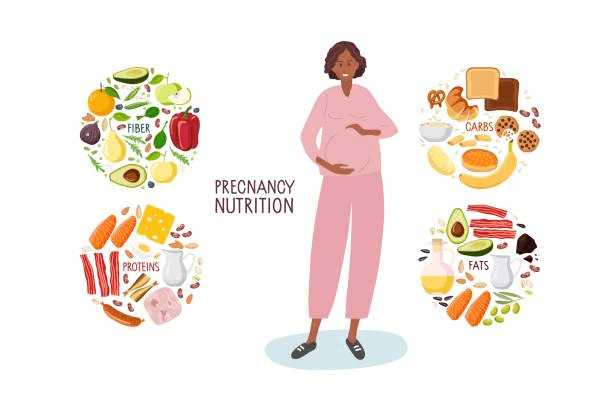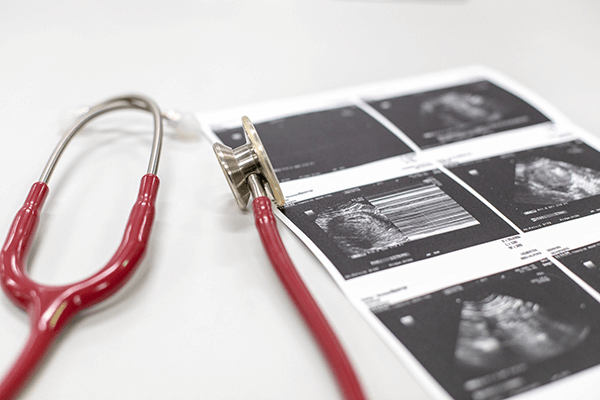When to Seek Medical Attention for Bleeding During Pregnancy

Introduction
Bleeding during pregnancy can be a frightening experience, but it is not always a sign of serious complications. While some causes of bleeding are harmless, others require immediate medical attention. This article explores the potential causes of bleeding during pregnancy, what symptoms to look out for, and when to seek help from a healthcare provider.
Causes of Bleeding in Early Pregnancy
1. Implantation Bleeding
- Occurs when the fertilized egg attaches to the uterine lining.
- Light spotting, usually pink or brown, lasting 1-2 days.
2. Miscarriage
- A loss of pregnancy before 20 weeks.
- Symptoms include heavy bleeding, cramping, and passage of tissue.
3. Ectopic Pregnancy
- When the fertilized egg implants outside the uterus, often in the fallopian tube.
- Symptoms include sharp abdominal pain, heavy bleeding, and dizziness.
For tips on managing early pregnancy symptoms, read this First-Trimester Survival Guide.
Causes of Bleeding in Later Pregnancy
1. Placenta Previa
- The placenta covers the cervix, causing painless bleeding.
- Usually detected via ultrasound in the second or third trimester.
2. Placental Abruption
- The placenta detaches from the uterine wall, leading to heavy bleeding.
- Symptoms include severe abdominal pain, uterine tenderness, and contractions.
3. Preterm Labor
- Bleeding accompanied by regular contractions before 37 weeks.
- Can indicate the start of labor.
Types of Bleeding and What They Indicate
Spotting vs. Heavy Bleeding
- Spotting: Small amounts of light-colored blood, often harmless.
- Heavy Bleeding: Bright red blood or large clots, which may signal complications.
Color and Consistency
- Pink or Brown: Often less concerning, but still report to your doctor.
- Bright Red: May indicate active bleeding and requires immediate evaluation.
When to Seek Immediate Medical Attention
Contact your doctor or visit the emergency room if you experience:
- Severe Abdominal Pain: Could indicate ectopic pregnancy or placental abruption.
- Heavy Bleeding: Soaking through a pad in an hour or passing large clots.
- Fainting or Dizziness: Signs of blood loss or ectopic pregnancy.
- Fever or Chills: May indicate an infection.
Tests and Diagnosis for Pregnancy Bleeding
- Ultrasound: Identifies placental position, fetal heartbeat, and uterine conditions.
- Blood Tests: Measure hCG levels and check for anemia or infection.
- Physical Examination: Evaluates cervical dilation or other abnormalities.
How Doctors Manage Bleeding During Pregnancy
Bed Rest
- Recommended for minor bleeding in some cases to reduce strain on the uterus.
Medications
- Hormonal support, such as progesterone, for certain conditions.
Surgical Interventions
- Procedures like cerclage for cervical insufficiency or surgery for ectopic pregnancy.
Common Myths About Bleeding During Pregnancy
- Myth: Any bleeding during pregnancy means miscarriage.
- Fact: Many cases of light bleeding are harmless and resolve on their own.
- Myth: Exercise causes pregnancy bleeding.
- Fact: Moderate physical activity is safe for most pregnancies.
For more insights on how appetite changes during pregnancy, check out this article on food aversions.
Coping With Anxiety About Bleeding
- Stay Informed: Learn about potential causes and what to expect.
- Emotional Support: Talk to loved ones or join a pregnancy support group.
- Professional Counseling: Seek help if anxiety becomes overwhelming.
Bleeding in High-Risk Pregnancies
Risk Factors
- Multiple pregnancies (twins or triplets).
- Advanced maternal age or history of miscarriage.
Monitoring and Specialized Care
- Frequent ultrasounds and blood tests to monitor fetal development.
- Close supervision by a maternal-fetal medicine specialist.
Preventive Measures for Healthy Pregnancies
- Regular Check-Ups: Attend all prenatal appointments to monitor for complications.
- Healthy Lifestyle: Maintain a balanced diet and stay active.
- Avoid Harmful Substances: Refrain from smoking, alcohol, and certain medications.
FAQs About Bleeding During Pregnancy
1. Is spotting normal during pregnancy?
Yes, light spotting is common, especially in early pregnancy, but always inform your doctor.
2. Can heavy bleeding in early pregnancy still lead to a healthy baby?
In some cases, yes, but heavy bleeding should always be evaluated by a healthcare provider.
3. What does brown spotting mean?
Brown spotting is usually old blood and less concerning, but it should still be reported.
4. Can sex cause bleeding during pregnancy?
Yes, light spotting after sex is common due to increased blood flow to the cervix.
5. When should I go to the ER for pregnancy bleeding?
Seek emergency care if you experience heavy bleeding, severe pain, dizziness, or fever.
Conclusion
Bleeding during pregnancy can be alarming, but it’s important to remember that not all cases indicate serious problems. Understanding the potential causes, recognizing warning signs, and seeking timely medical attention can help ensure the best outcomes for both mother and baby. Always trust your instincts and consult your healthcare provider if you have concerns.






